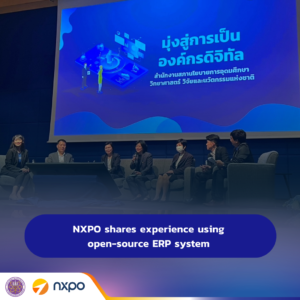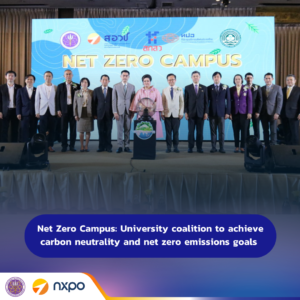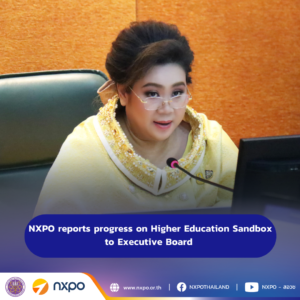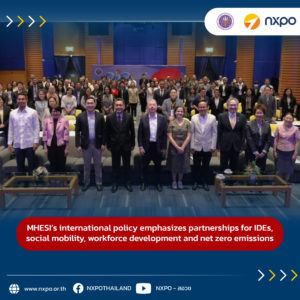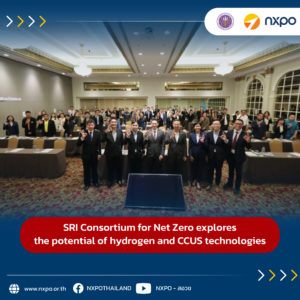NXPO Executive Board Meeting was held on 5 February 2020. The meeting was chaired by Dr. Suvit Maesincee, Minister of Higher Education, Science, Research and Innovation and Dr. Kitipong Promwong, NXPO President, served as the secretariat.

The meeting agenda focused on the subject of circular economy. Circular economy is part of Bio-Circular-Green Economic Model or BCG that the Thai Government has adopted in order to lead Thailand to become an innovation-driven economy and attain Sustainable Development Goals (SDG). Circular economy is an economic system of closed loop in which waste is eliminated and resources are continually used by employing reuse, sharing, repair, refurbishment, remanufacturing and recycling. Thailand aims to transition from a linear economy, in which waste and pollution are created from manufacturing activities, to a circular economy, and the path needs to be investigated. NXPO employed systems research to perform this study.
In the study, implementations of circular economy in leading countries such as the Netherlands and Finland were extensively reviewed to gain better understanding of policy, incentives and tools utilized in these countries to drive the agenda. The study reveals that policy and measures vary from country to country, highly dependent on the context, threats and expectation of each country. For Thailand, the recommendations to transform the country to a circular economy derived from the study are i) taking a holistic approach to re-design a close-loop system; ii) setting the objective of circular economy to promote economic growth, income distribution and job creation; iii) positioning circular economy as a solution to current challenges and an opportunity for new economy; iv) expanding the domestic market for businesses taking a circular economy approach; v) starting the implementation of circular economy concept in sectors that are ready in terms of major players, regulations, knowledge and technology; vi) carrying out stakeholder analysis and management; vii) creating awareness of circular economy among banks and investors so that new and diverse financial instruments can be introduced; and viii) connecting businesses/industry to academic/research sector to make technology and innovation more accessible to industry.
The meeting discussed and exchanged views extensively after the presentation. Among the comments are i) the young generation would be an important driver of circular economy as they are actively following global trend, ii) policy should focus on providing incentive to people sector, iii) implications of circular economy should be investigated, and iv) the implementation should involve all stakeholders from the beginning.
Minister Suvit also added that the result of this research will be instrumental in the development of the national economic policy and strongly urged the inclusion of young generation in the circular economy movement.




